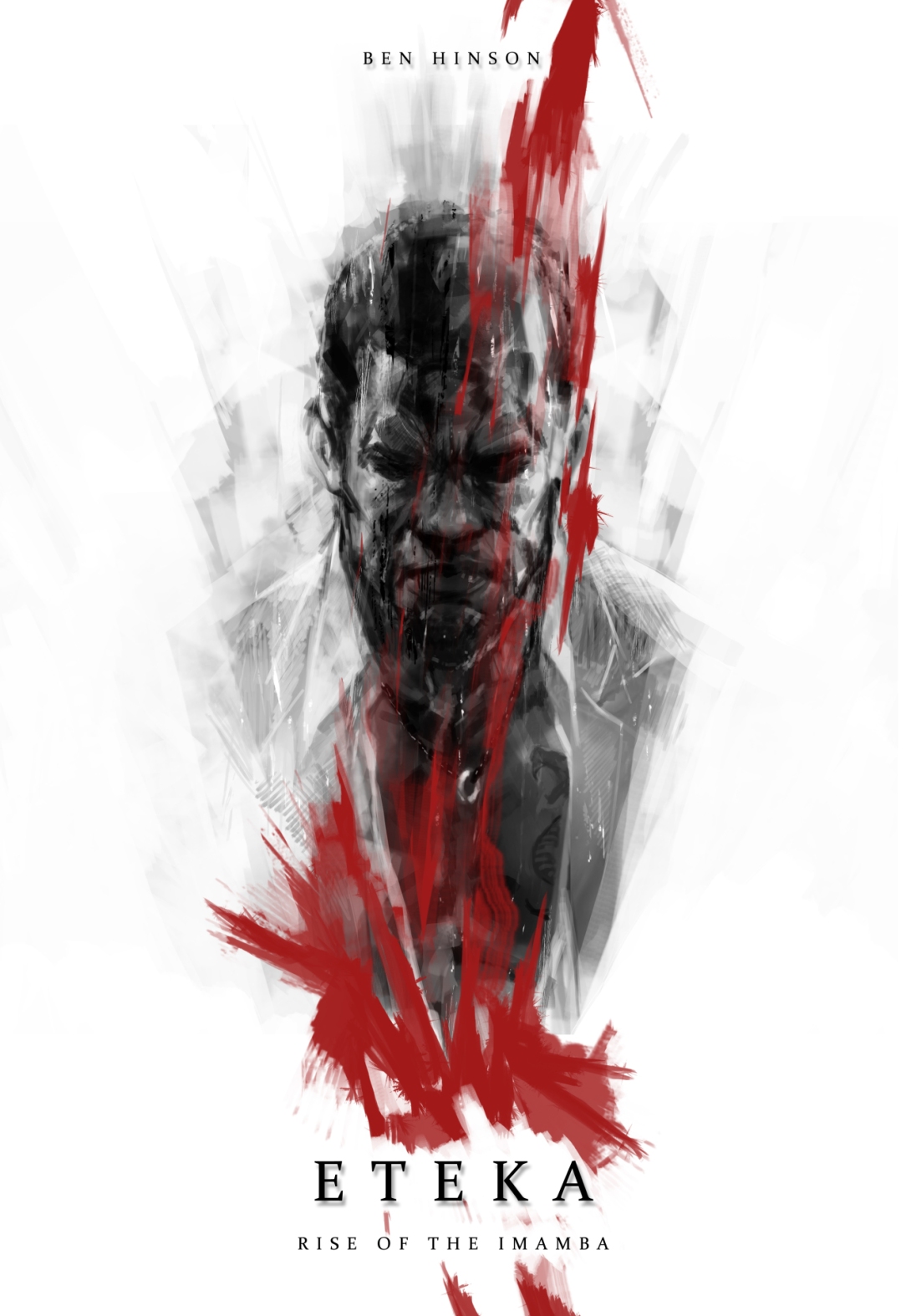Eteka: Rise of the Imamba
by Ben Hinson
The inheritance of European colonialism in Africa is one of fractured cultures, tribal territories split by arbitrary national borders, and violence.In the second half of the 20th century, the Cold War would be the incubator not just for the last gasp of European colonial influence, but also the beginning of diverse people seeking to heal 400 years of slavery and foreign rule.
Eteka: Rise of the Imamba, by Ben Hinson, is set in Cold War Africa. The story spans several distinct decades at the end of the Cold War, from the 1960s to the 1990s. The singular thread of the novel is the lasting impact of colonialism and how those forces could be a crucible and catalyst for later violent groups.
In American entertainment, during this same period, Africa was often depicted as a continent filled with incompetent and comedic dictators who were followed by hapless and incompetent thugs. In Hinson’s novel, the men and women of Africa are dangerous, duplicitous, complex, and motivated by a tapestry of circumstances. Their loyalties are complicated, but the people are anything but hapless. The characters are compelling and sympathetic, even those characters who are supposed to be antagonistic.
Oga, for example, is the commander of the Imamba, African mercenaries pulled from sundry national military forces. He’s revealed early to be interested more in profiting from his skill as a soldier than he is in a more noble calling, such as contributing to the building of African nation-states that benefit Africans. He is venal and cold-blooded. He is also a man who makes a compelling case for why he doesn’t need to be anything more than he is.
Oga’s partner, Yisa, is conflicted with the the role he plays in the Imamba. A founding member with Oga, Yisa wants to see their group be part of a pan-Africa recovery from colonialism. He wants the Imamba to help train future leaders in the different countries. While he sees being a mercenary a necessary job, he doesn’t lose his compassion for people. Just as Oga is a sympathetic, if distasteful, character, Yisa is a man who’s at times unlikable because of his psychological conflict.
That’s not to say the story is purely a character study. It’s also a Cold War thriller full of intrigue and action, in the best tradition of Robert Ludlum or Tom Clancy.
One of the delightful nuggets in this book is Hinson’s choice to write French dialogue in French, with the translation in footnotes. Often, writers use simple tricks to give the impression of characters speaking a foreign language, but Hinson appears to have a sufficient grasp of the language to allow him to write pages of dialogue. Rather than become cumbersome, it further illustrates that the characters and setting are not American.
Speaking of footnotes, the book is full of explanatory footnotes. While this might be a challenge or a distraction to some readers, I found this to create an aspect of the story that helped further suspend disbelief. Often, the novel has an air of a biography or documentary rather than a novel.
Another highlight of Eteka: Rise of the Imamba is the series of illustrations. From the cover art to the interior illustrations of characters, it seems as though the novel is ready to transform into a graphic novel, which is testament to Hinson’s narrative that is alive and vibrant.
Eteka: Rise of the Imamba is a thrill. It is a different look at a time and place too often caricatured in popular American culture. It is well worth your time.

